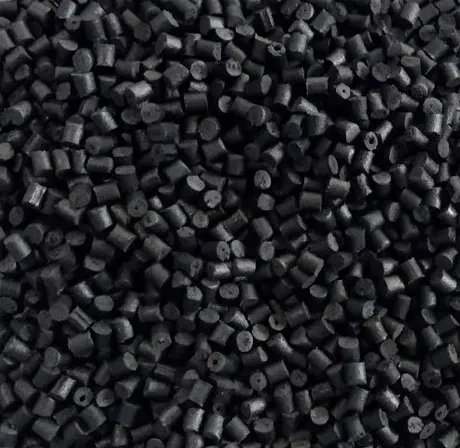
Nylon Glass, also known as Glass-Filled Nylon or Nylon-Glass Fiber Composite, is a material used in Fused Deposition Modeling (FDM) 3D printing. It is a blend of nylon polymer and glass fibers, which enhances its mechanical properties.
The addition of glass fibers to the nylon matrix improves the material's strength, stiffness, and dimensional stability. It exhibits excellent tensile strength, impact resistance, and heat deflection temperature. Nylon Glass also offers good chemical resistance and electrical insulation properties.
Nylon Glass is often used to create functional prototypes that require high strength and rigidity. The addition of glass fibers improves the mechanical properties of the printed parts, making them more robust and closer to the properties of the final product.
Nylon Glass is suitable for manufacturing tooling and jigs, which are essential in various industries. These tools often need to withstand repeated use, mechanical stress, and high temperatures. Nylon Glass provides the necessary strength, durability, and thermal resistance for such applications.
Nylon Glass can be used to produce end-use parts in applications where strength, stiffness, and dimensional stability are crucial. It finds applications in industries such as automotive, aerospace, manufacturing, and engineering, where functional parts need to meet demanding requirements.
With its increased strength and stiffness, Nylon Glass is suitable for printing structural components that need to bear significant loads or provide support. It can be used for brackets, supports, housings, and other load-bearing parts.
Nylon Glass exhibits good electrical insulation properties, making it suitable for applications in the electrical and electronics industry. It can be used for housings, connectors, and enclosures for electronic devices or electrical components.
Nylon Glass is commonly used in the automotive industry for producing various components such as engine covers, brackets, housings, and interior parts. The material's strength, durability, and resistance to heat and chemicals make it suitable for these applications.
Nylon Glass can be utilized in the production of sporting goods, such as equipment handles, protective gear, brackets, and lightweight structural components. The material's strength and stiffness contribute to improved performance and durability.
| Property | Value |
|---|---|
| Impact Strength | 80 Kj/m2 |
| Tensile Modulus | 4000 MPa |
| Tensile Strength | 95 MPa |
| Melting Point | 180° C |
| Heat Deflection Temp. HDT/A | 160° C |
| Thermal Expansion Coefficient | 0.1 x 10-4/K |
| Max Usage Temp. Long Term | 90° - 120° C |
| Max Usage Temp. Short Term | 150° C |
| Specific Volume Resistivity | 1011Ωm |
| Linear Mold Shrinkage | 0.5 |
| Density | 1.18 g/cm3 |
| Shore Hardness | 77 MPa |